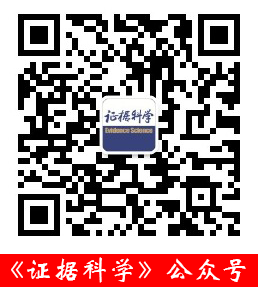 
|
| 第1期 | 第2期 | 第3期 | 第4期 | 第5期 | 第6期 |
—以“孙杨案”为中心
李锟
(西北政法大学刑事法学院,陕西 西安 710122)
【摘 要】国际体育仲裁法庭的发问规则以相关性和真实性为基本要求,采取灵活多元的调查方法和混合式发问方式。结合“孙杨案”听证实录可知,法庭直接询问采用开放式问题,用于询问本方证人、确认庭前证言和阐述核心意见;交叉询问采用封闭式问题,用于质询对方证人、弹劾证人可信度和发现不实证词。禁止猜测式、假设式、诱导式发问是法庭发问的基本规则。诱导发问专家证人、超出直接询问范围、质疑证人作证资格、违背庭前发问合意等不当发问都会成为异议的对象。仲裁员对发问边界和异议成立与否具有较大裁量权。国际体育仲裁法庭发问的规范要求和实践规则,为我国建立以证人出庭作证为基础、控辩双方交叉询问为载体的证据调查程序具有借鉴意义。
【关键词】国际体育仲裁;孙杨案;相关性;交叉询问;异议规则
【中图分类号】D997.4
【文献标识码】A
【文章编号】1674-1226(2023)01-0039-13
The questioning rules of the court of arbitration for sport——An analysis centered on the Sun Yang case. Li Kun. Northwest University of Political Science and Law, Xi'an, Shaanxi, 710122.
【Abstract】The questioning rules of the Court of Arbitration for Sport (CAS) take relevancy and authenticity as the basic requirements and adopt flexible and diversified investigation methods and hybrid questioning methods. Through the real-time record of the hearing of the Sun Yang case, it can be seen that open-ended questions are used in direct examination to question the witnesses on our side, to confirm pretrial testimony, and to expound core opinions. Closed-ended questions are used in cross-examination to question opposing witnesses, to impeach the credibility of witness , and to discover inaccurate testimony. The prohibition of speculative, hypothetical, and leading question is the basic rule of court questioning. Improper questioning such as inductive questioning of expert witnesses, exceeding the scope of direct examination, questioning the witness's qualification to testify and violating the agreement of pre-trial questioning will become the subject of objection. The arbitrator have a wide discretion on the questioning boundary and the validity of objection. The standardized requirements and practical rules of the Court of Arbitration in sport provide reference for the establishment of the evidence investigation procedure based on the appearance of witnesses and cross-examination of both sides as the carrier in China.
【Key Words】International arbitration for sport; Sun Yang case; Relevancy; Cross-examination; Objection rule